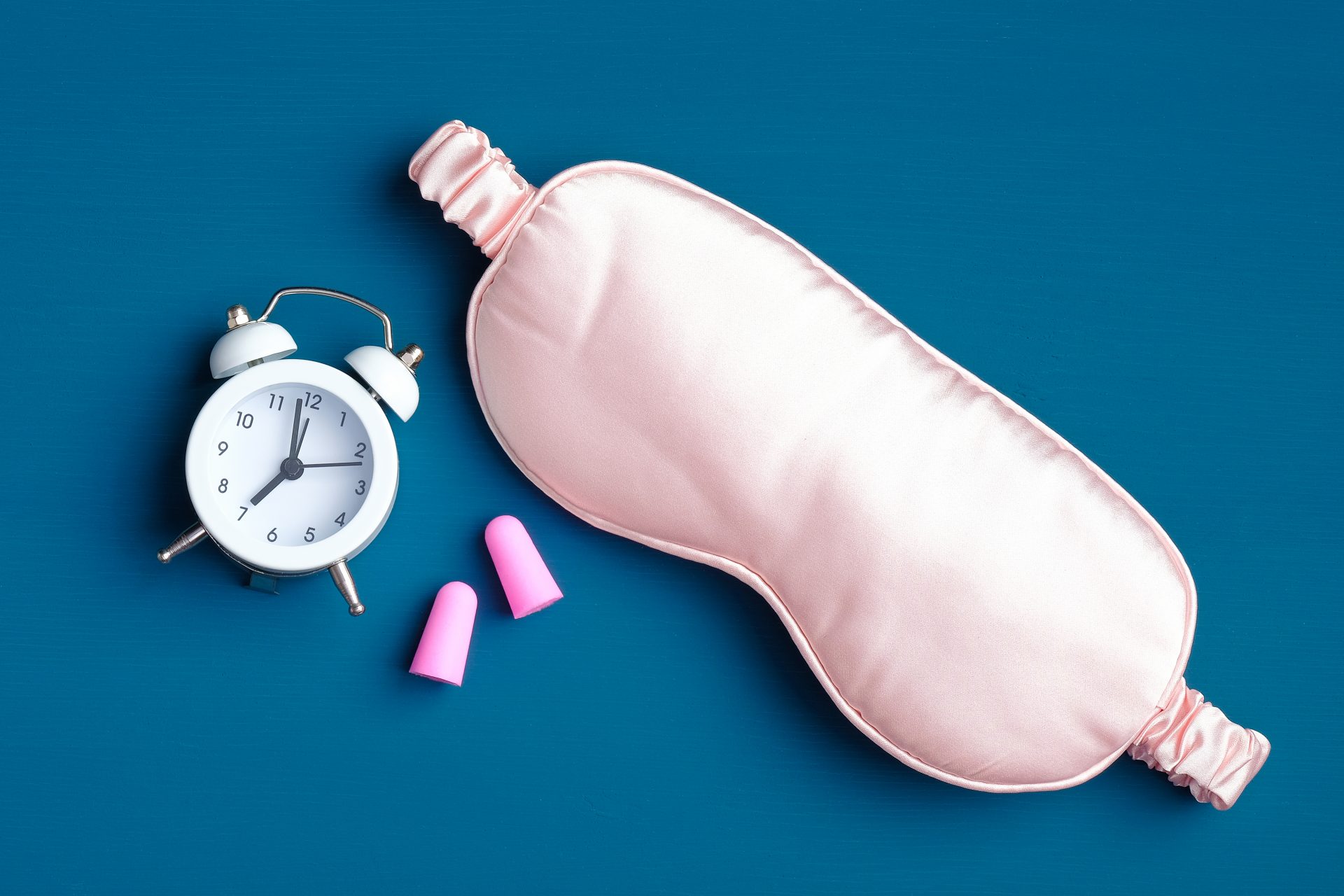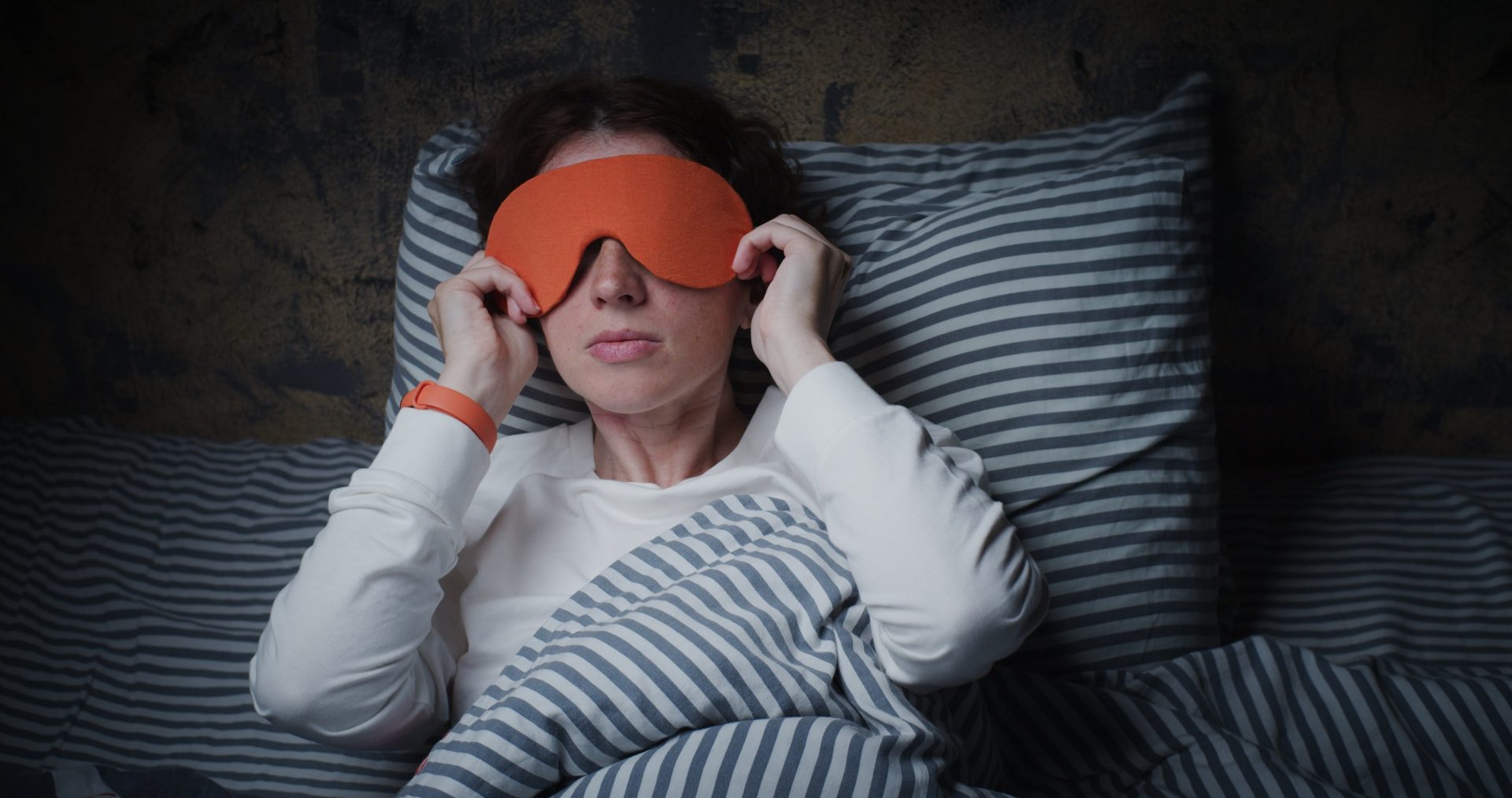We can become ‘psychologically addicted’ to tools that help us sleep.
I can’t sleep without my eye mask and earplugs. They don’t simply improve my sleep – I legitimately can not deal with seeing faint light through my eyelids or the sound of my housemates watching TV in the other room.
These were harmless tools I picked up to help me become a less sensitive sleeper when I moved into a shared London flat (because no one wants to be the person asking their housemates to keep it down à la Ross Geller). But after years of putting in earplugs and slipping on an eye mask every single night, I now can’t sleep without them.
You may also like
“I’m a sensitive sleeper – how can I ensure I get a good night’s sleep?” A sleep expert answers your questions
When I found myself packing them for a trip to stay in the middle of nowhere (with no noise but the wind), however, I started wondering how healthy this obsession had become. Have I become addicted to my sleeping aids?
Are sleep aids addictive?
Worryingly, I probably have become too reliant on these things, says Dr Kat Lederle, sleep expert and founder of Somnia. “An eye mask or ear plugs is not dangerous at all compared to alternatives like sleeping pills, but we can still become reliant on these tools,” she says. “These things aren’t physiologically addictive, but they are psychologically addictive.”

While we can get through the night without whatever sleep hack we use – be it an eye mask, a drop of CBD before bed or a meditation app – the real issue is that we tell ourselves we can’t.
“We might have improved our sleep when we first used these things, so we tell ourselves we won’t be able to cope without them. On top of that, using them can also become an automated habit. As you go to bed, you turn off the light and the automatic behaviour is to reach for those earplugs. When you don’t, you feel weird,” explains Dr Lederle.
That feeling of swelling anxiety is a sure-fire way to ruin our sleep, and for good reason. “It makes sense that sleep goes out the window when we are stressed – anxiety means there’s danger and if you’re in danger, the last thing your body will let you do is fall asleep because it needs to protect itself. Biologically, that is how we are hard-wired to work,” adds Dr Lederle.
You may also like
How closing your stress cycle can help you prevent burnout
“I think the question is, why are we so scared of having a slightly disrupted sleep? Where is the fear of being tired coming from? Likely, it’s that we might not work as well the next day.”
Our sleep obsession
I hadn’t thought my eye mask wearing came down to an obsession with productivity, but perhaps it’s true: I hate feeling slightly off my game at my desk, worrying about being slow or less coherent. My eye mask and earplug obsession began in that shared house because my work schedule was so different from my housemates – I wanted to feel fresh when I woke up early in a home with people who slept and rose much later than I did.

“What’s interesting is that it is usually our own perception that changes the most when we tell ourselves we didn’t sleep well. An external person may or may not notice that you are tired, but when we tell ourselves we are knackered we are more likely to act like it,” says Dr Lederle.
How to sleep without aids
The idea is to use them with caution. Rather than wearing them all the time, only choose to use masks and earplugs on the nights you know you have a higher chance of real disturbance. “Maybe you use earplugs only on the nights you know your neighbours are out and will be coming home late. Or only put your eye mask on if you wake up in the morning and know the sun will be up soon but you aren’t ready to be woken,” says Dr Lederle.
You may also like
“How can I feel more energised after a bad night’s sleep?” A sleep expert answers your questions
However, for those who are already over-reliant, reshaping our sensitivity is key. “Say you wake up because your partner starts snoring. Rather than worry about it and not be able to sleep because you are so stressed or anxious, try to observe it non-judgmentally. Think about being curious and relaxing into the noise which will eventually make falling asleep easier than if you were to fight the sound,” she says.
That sounds much easier to say than to do, especially if you are trying to sleep against less-than-meditative noises of housemates chatting or neighbours’ children crying. But for me, the most crucial part is trusting that my life (and work) won’t fall apart if I have to deal with a slither of light or less than eight hours of sleep every so often.
“If a lack of sleep is going on for weeks, it is a problem. But the body can cope with an occasional poor night’s sleep – flexibility is part of its inbuilt system,” says Dr Lederle.
Images: Getty
Source: Read Full Article
